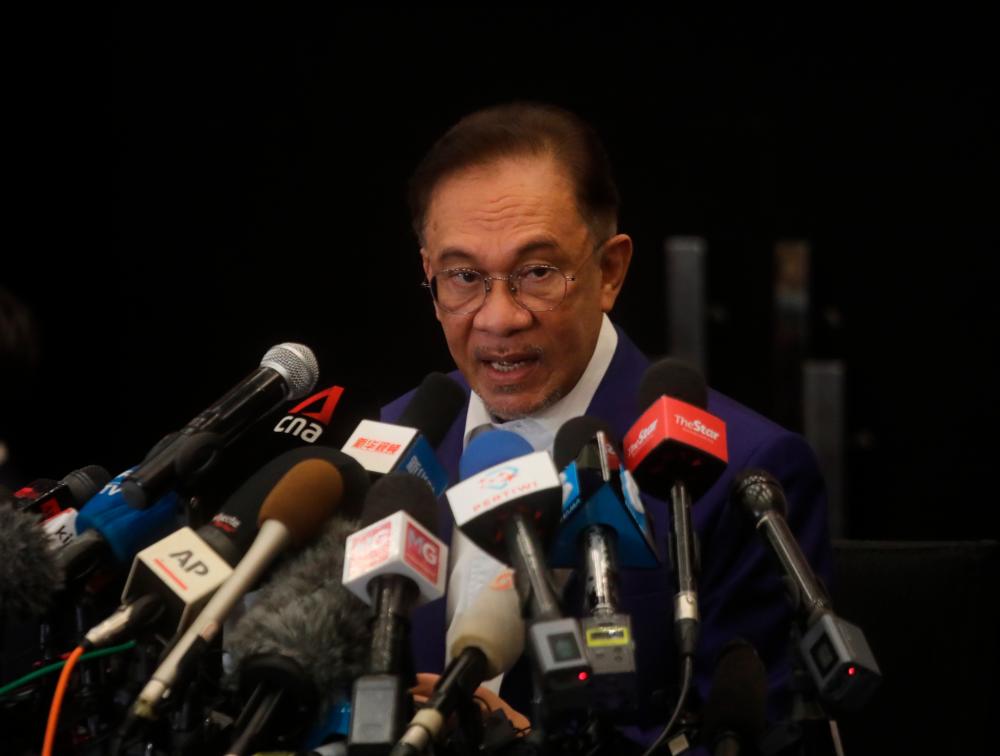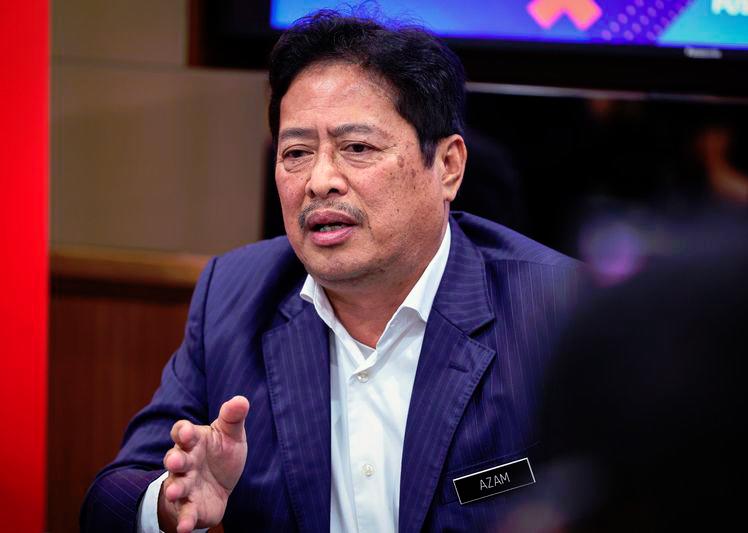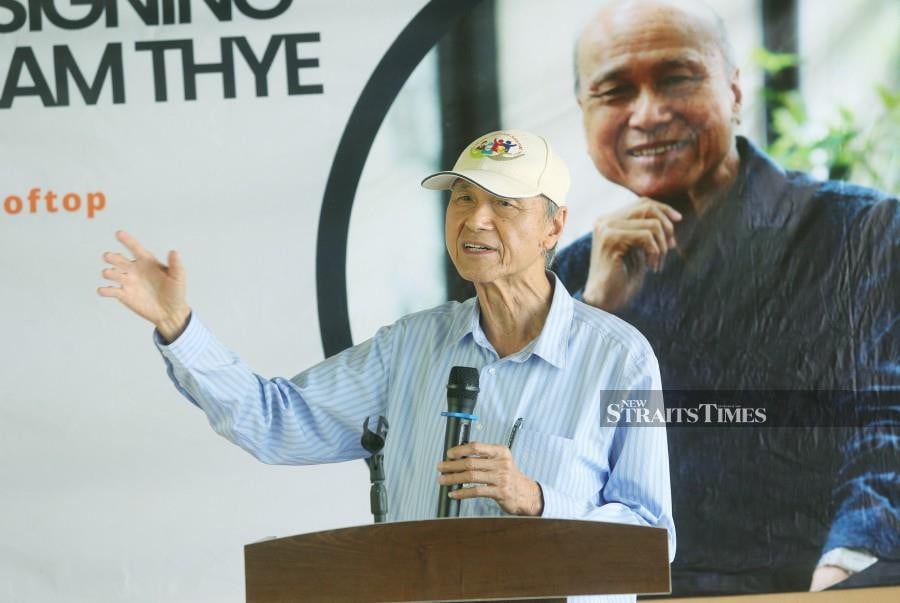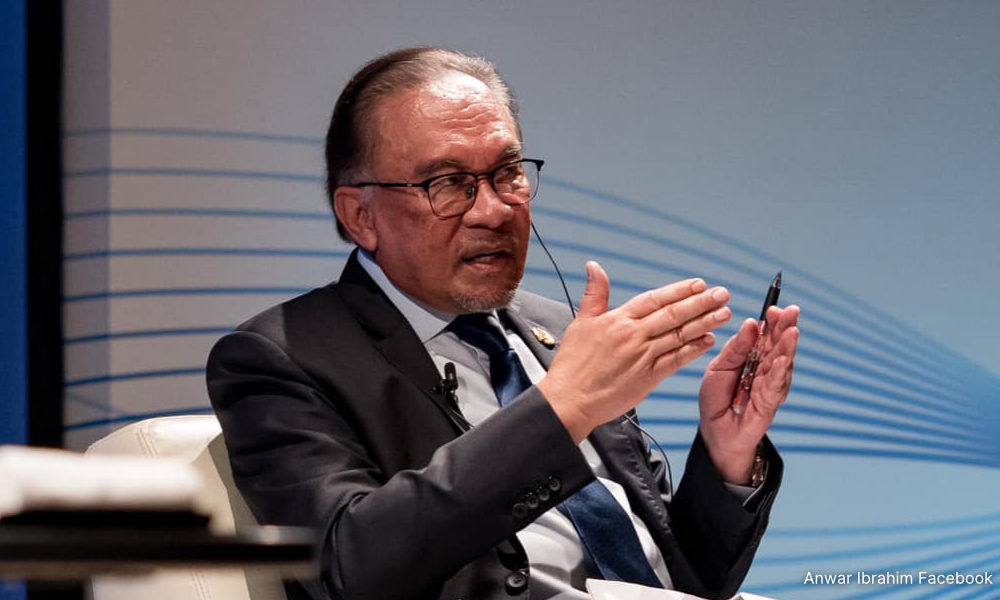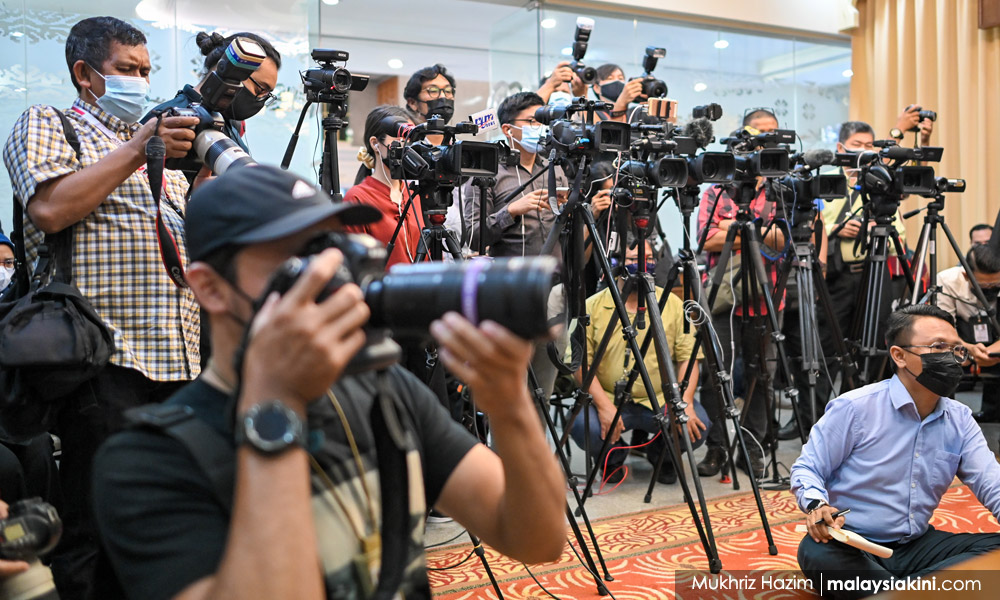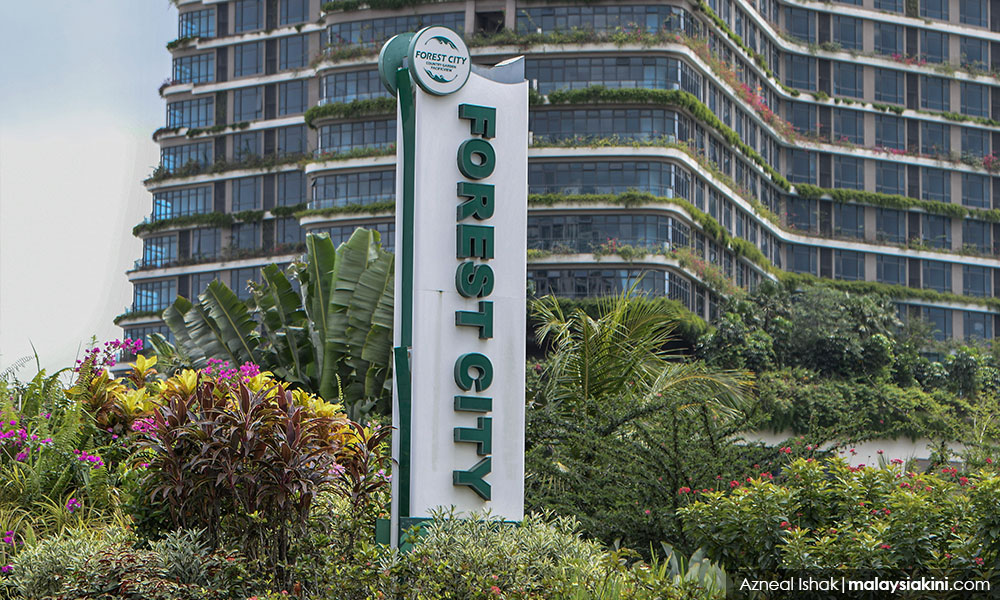Media Statement – 30/5/2024
Malaysia’s Death Row will continue to have occupants, existing and new, until Malaysia totally abolishes the Death Penalty
Inconsistency arises since Malaysia already abolished Life Imprisonment
MADPET (Malaysians Against Death Penalty and Torture) notes sadly that on 29/5/2024, the Federal Court upheld death sentence of former businessman for murder of UUM graduate 18 years ago The court dismissed Shahril Jaafar’s review application to commute his death sentence to life imprisonment under the Revision of Sentence of Death and Imprisonment for Natural Life (Temporary Jurisdiction of the Federal Court) Act 2023.(Malay Mail, 29/5/2024). It must be noted that in most cases, death sentence has been commuted to imprisonment plus whipping, and there has been no public outcry when this happened.
Despite the abolition of the Mandatory Death Penalty when Abolition of Mandatory Death Penalty Act 2023, when it came into force on 4/7/2023, the death penalty remains. All that the Abolition of Mandatory Death Penalty Act did was to provide an alternative sentence to death, being the sentence of long imprisonment and whipping.
Other examples in revision of sentence cases - on 4/1/2024, the Federal Court also upheld the death sentence for ex-guard who was convicted for 2 murders. (Star, 4/1/2024). On 5/3/2024, the Federal Court upheld the death sentence against four men who caused the death of a 32-year-old Batu Kawa woman in 2007. (Borneo Post, 5/3/2024). On 16/5/2024, The Federal Court upheld the death sentence of a Singaporean man for the murder of his eight-year-old Thai stepson in 2008. (Star, 16/5/2024).
In these Revision cases, prejudice lies in the fact that these cases were then defended on the basis that conviction carries the mandatory death penalty, as it would be different if the sentence then could also be prison sentence that had a range. In cases, more so when there are multiple accused, then lawyers would have raised factors that would mitigate sentences and most unlikely that all would get the exact same sentence – death.
On 14/3/2024, the Court of Appeal upheld the death sentence of six men convicted of murdering Deputy Public Prosecutor Datuk Anthony Kevin Morais nine years ago. (Malay Mail, 14/3/2024). This was an appeal of a High Court decision made in 2020, before the mandatory death penalty was abolished. It is difficult to adduce new evidence during an appeal. After the mandatory death penalty was repealed, it more likely that the ‘leader’ may get a highest sentence.
Languishing in Death Row after Malaysia
Abolished Life Imprisonment?
This puts Malaysia into a serious dilemma, considering that Malaysia had publicly committed to the abolition of the death penalty, when they voted in favour of the United Nations General Assembly Resolution 73/175 of 17 December 2018, 75/183 of 16 December 2020 and 77/222 of 15 December 2022 to impose a moratorium on execution pending the abolition of the death penalty. These resolutions was supported by the post GE14 Pakatan Harapan Government in 2018, the Perikatan Nasional government in 2020, and Prime Minister Anwar Ibrahim’s Pakatan Harapan led-coalition (also known as ‘Unity Government) in 2022. This indicates that all major political parties in Malaysia have taken the stance that Malaysia will abolish the death penalty, and until then, no one will be hanged to death.
When Malaysia’s Abolition of Mandatory Death Penalty Act came into force, it did not just abolish mandatory death penalty, but also life imprisonment.
Thus, what will happen to persons still being sentenced to death by courts. Will they be put on death row until they die? This goes contrary to the fact that Malaysia has abolished life imprisonment.
Now, those on death row now whose death sentence is upheld by the Federal Court during the review application, or those who may still be sentenced to death as the death penalty is still an available sentence in law for more than 30 offences, their death sentence can only be commuted to imprisonment if they are pardoned by the King or Rulers, or if they are successful in some subsequent application to court.
Be True To Commitment To Abolish Death Penalty
Malaysia, being a member of the United Nation Human Rights Council did on 13/10/2023 did vote in favour of Resolution on the Question of the death penalty (A/HRC/54/L.34) which was supported by 28. 11 member States voted against, and 7 abstained.
In so doing, Malaysia did “…Strongly deploring the fact that the use of the death penalty leads to violations of the human rights of the persons facing the death penalty and of other affected persons’ and took the position ‘…that derogation from the right to life is never permitted, even during a state of emergency…’
Parliament, Not Courts, To Be Blamed for New and Existing Tenants of Death Row
Until and unless the death penalty is abolished in law, there will always remain the possibility that some will remain in death row, and new persons will be sentenced to death. Blame will lie not with the courts and Judges, but with Parliament who need to totally abolish the death sentence.
Given the public stance taken by this government, and by the Opposition Perikatan Nasional when they voted in favour UN General Assembly Resolution in 2020, MADPET do not foresee any objections if this government tables laws now to totally abolish the death penalty.
It is sad that death sentence is available for offences that even does not directly result in death or serious bodily injury of victims.
A person languishing in prison continue to be punished for years, with time to repent or reform, whilst a person once executed ceases to suffer for his/her crimes.
MADPET calls for the immediate repeal of the death penalty, and for the continued imposition of the moratorium on execution pending abolition of the death penalty, and
MADPET also calls on Malaysia to accede to or ratify the Second Optional Protocol to the International Covenant on Civil and Political Rights. Note that this was part of the UN General Assembly Resolutions and Human Rights Council Resolution that Malaysia supported.
Charles Hector
For and on behalf of MADPET(Malaysians Against Death Penalty and Torture)
Federal Court upholds death sentence of former businessman for murder of UUM graduate 18 years ago
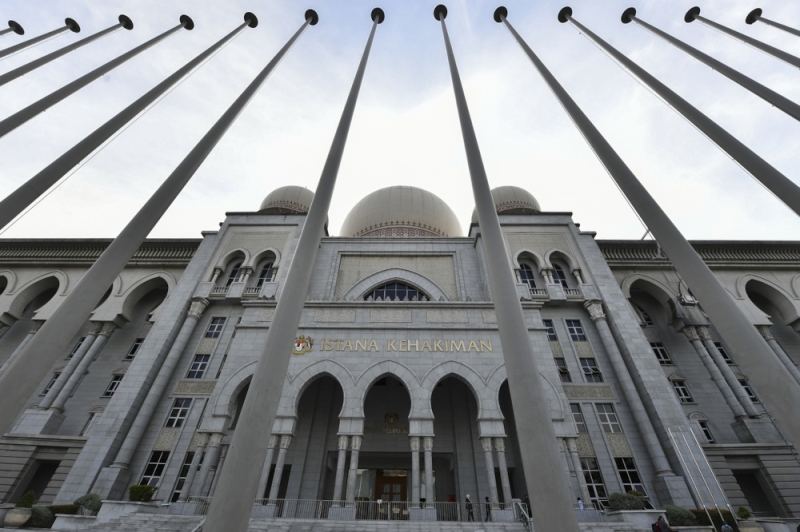
PUTRAJAYA, May 29 — The Federal Court here today upheld the death sentence of a former businessman for the murder of a female marketing executive 18 years ago.
The three-member panel comprising Justices Datuk Harmindar Singh Dhaliwal, Datuk Nordin Hassan, and Datuk Abu Bakar Jais dismissed Shahril Jaafar’s review application to commute his death sentence to life imprisonment under the Revision of Sentence of Death and Imprisonment for Natural Life (Temporary Jurisdiction of the Federal Court) Act 2023.
“We wish to reiterate this court is always aligned to compassion and mercy. In our view this is an exceptional case with exceptional facts,” said Justice Harmindar.
He said the deceased (Chee Gaik Yap) had suffered exceptional violence at Shahril’s hands. He pointed out that the 25-year-old woman was abducted, sodomised, raped, and killed by Shahril.
He said the crime caused public uproar and shock, adding that the incident took place in broad daylight.
“We are constrained to dismiss Shahril’s application and the death sentence is upheld,” said Justice Harmindar.
In 2015, Shahril, 43, was found guilty by the Alor Setar High Court of killing Chee, a Universiti Utara Malaysia graduate, near the Cinta Sayang Club in Taman Ria Jaya, Sungai Petani, between 5.30pm on January 14 and 3.05am on January 15, 2006.
He was sentenced to death, and his subsequent appeals at the Court of Appeal and Federal Court were dismissed in 2016 and 2018, respectively.
Earlier, Shahril’s lawyer Rosli Kamaruddin asked the court to commute the death sentence imposed on his client to life imprisonment.
He conveyed Shahril’s remorse and appealed to the court for a chance at redemption, citing his client’s active participation in prison rehabilitation programmes as a testament to his commitment to repent.
Deputy public prosecutor (DPP) Datuk Dusuki Mokhtar, who was assisted by DPP Solehah Noratikah Ismail objected to Shahril’s application and urged the court to uphold the death sentence, noting that this is the rarest of rare cases.
He said it was a brutal kidnap, rape, sodomise, and murder of a young lady who had gone jogging with her younger sister, adding that her semi-nude body was found nine hours later in a bush near the jogging track.
Dusuki said forensic pathologists found 50 wounds on Chee’s body, including around her private parts where Shahril’s DNA was found.
He said Shahril fled to Australia for three years to avoid investigation and arrest. He was finally detained six years later at KLIA upon his arrival from Perth in January 2012. — Bernama - Malay Mail, 29/5/2024
Appeals Court upholds death sentence of six men convicted of murdering Kevin Morais
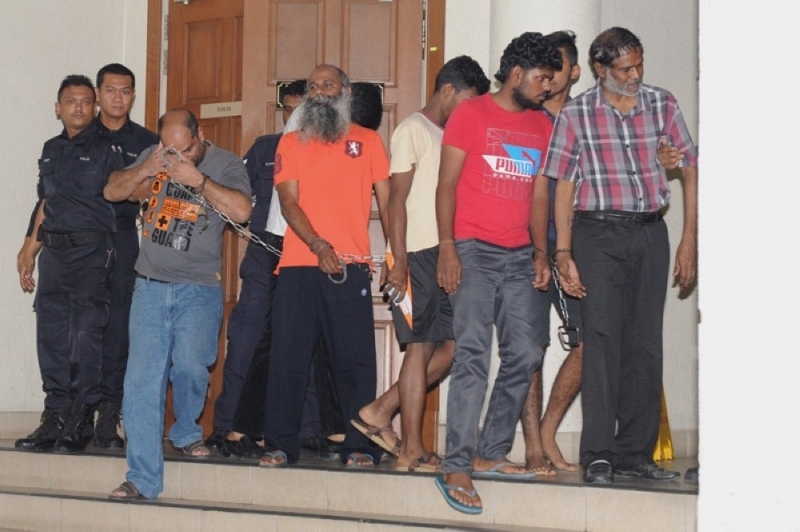
PUTRAJAYA, March 14 — The Court of Appeal here today upheld the death sentence of six men convicted of murdering Deputy Public Prosecutor Datuk Anthony Kevin Morais nine years ago.
They are a former pathologist, Colonel Dr R. Kunaseegaran, 61; money lender, S. Ravi Chandran, 53; and four unemployed, R. Dinishwaran, 32; AK Thinesh Kumar, 31; M. Vishwanath, 34; and S. Nimalan, 31.
A three-judge panel consisting of Datuk Hadhariah Syed Ismail, Datuk Ahmad Zaidi Ibrahim and Datuk Azmi Ariffin unanimously dismissed the appeal filed by the six men to set aside the decision of the High Court on July 10, 2020, which convicted and sentenced them to death for the murder.
In the court's decision, Judge Hadhariah said after examining all the grounds of judgment by the High Court judge and the evidence presented in court, the Court of Appeal found that the High Court judge did not err in terms of law and facts.
“The conviction imposed (against the six men) by the High Court was correct,” she said.
Judge Hadhariah said the murder was carefully planned and the condition of the body when it was found showed the cruelty of all the accused.
“If killing the victim was not enough, the deceased's car was also burned and his personal belongings were disposed of.
“This murder incident is categorised as extraordinary from an ordinary murder incident. Therefore, in our opinion, the punishment that commensurates the offence committed is hang to death,” said Judge Hadhariah.
She also said that when Morais’ body was found, it was fully clothed (but) without shoes and the hands tied behind his back with a tie.
“There are seven pressure marks or compression on the chest, shoulders and back of the body, which is placed in a sack in a fetal position. The sack is tied with iron wire and then put into the drum. Then cement is poured into the drum barrel which is then dumped into a swamp area,” she said.
She said forensic experts testified that the cause of Morais' death was due to suffocation.
The
judge also said there was a common intention among all the accused to
kill Morais because Ravi Chandran, Dinishwaran, Thinesh Kumar,
Vishwanath and Nimalan were together during the deliberate collision
between the Triton car and the deceased's car.
Judge Hadhariah
said Kunaseegaran was also involved based on the fact that he only
smiled and advised G. Gunasekaran to keep calm and not interfere in the
affairs of the other accused when Gunasekaran told him about the blood
flowing from the drum barrel.
“Kunaseegaran also showed a picture of the deceased’s burning car in his mobile phone to Gunasekaran and Kunaseegaran also said that he would bear the legal fees of the other accused because all the problems stemmed from him,” she said.
Judge Hadhariah said Kunaseegaran had a motive to kill Morais and the other accused were his agents.
Gunasekaran was initially accused of murdering Morais but the charge was later withdrawn after he pleaded guilty in the Sessions Court to the charge of disposing of Morais' body and was sentenced to two years in prison for the offence.
The prosecution then called Gunasekaran as a prosecution witness in the trial against all the accused.
On July 10, 2020, the High Court sentenced the six men to death after finding them guilty of killing Morais.
They were charged with killing Morais, 55, at a location along Jalan Dutamas Raya Sentul and Jalan USJ 1/6D, Subang Jaya between 7am and 8pm on September 4, 2015.
The deceased was reported missing on the date in question and was last seen leaving the condominium in a Proton Perdana car from Menara Duta, Kuala Lumpur, to his office at the Attorney General's Chambers in Putrajaya.
His body was found in a drum filled with concrete at Persiaran Subang Mewah, Subang Jaya, on September 16 of the same year. ― Bernama, Malay Mail, 14/3/2024
Federal Court upholds Singaporean's death sentence for killing stepson
- Nation
-
Thursday, 16 May 2024
PUTRAJAYA: The Federal Court here on Thursday upheld the death sentence of a Singaporean man for the murder of his eight-year-old Thai stepson in 2008.
This followed the rejection of Shawal Senin’s application by the three-member panel of judges to commute his death sentence to life imprisonment under the Revision of Sentence of Death and Imprisonment for Natural Life (Temporary Jurisdiction of the Federal Court) Act 2023.
"Application is dismissed and the death sentence is maintained,” said Chief Justice Tun Tengku Maimun Tuan Mat, who chaired the panel with Federal Court judges Datuk Zabariah Mohd Yusof and Datuk Abu Bakar Jais.
Shawal, 47, was sentenced to death by the High Court on Nov 18, 2011, for killing Siwakorn Sukuntha at his residence in Kondominium Pulai View, Taman Kobena, Tampoi, Johor Baru between 9pm Dec 24 and 1pm on Dec 27, 2008.
His appeals to the Court of Appeal and Federal Court were dismissed on April 22, 2013, and Jan 29, 2015, respectively.
Shawal’s counsel Bustaman Menon Abdul Hamid Menon pleaded for leniency to commute the accused's death sentence to a prison sentence of between 33 years and 35 years.
He submitted that although it was a tragic case involving a small boy who was beaten over three days, Shawal’s act did not stem from "a heart of evil” or that he had intended to kill the boy.
Shawal, who had lost his job and was using drugs at the time, beat the child to discipline him, he added.
Deputy public prosecutor Dhiya Syazwani Izyan Mohd Akhir objected Shawal’s application and asked the court to uphold the death sentence imposed on him.
She said Shawal had repeatedly hit his stepson with his hand, a clothes hanger, feather duster, and a hammer and it was an act of blatant disregard for the sanctity of human life.
According to the facts of the case, Shawal got angry and assaulted the child by hand, a hammer, a clothes hanger, and a feather duster and also kicked him when the boy did not respond to his questions. His wife tried to stop him but was warned that she would face the same fate.
The boy's mother testified that Shawal told her he had used a lighter to burn the child’s private parts.
Shawal's last resort is to seek clemency from the Johor Pardons Board. - Bernama, Star, 16/5/2024
Federal Court upholds death sentence against four men for murder

Police escort the four men after the proceedings at Kuching Court Complex.
KUCHING (March 5): The Federal Court upheld the death sentence against four men who caused the death of a 32-year-old Batu Kawa woman in 2007.
A three-member panel of the Federal Court comprising justices Tan Sri Datuk Amar Abang Iskandar Abang Hashim, Tan Sri Datuk Abdul Rahman Sebli and Datuk Mary Lim Thiam Suan made the unanimous decision against Goh Wee Khian, Farose Tamure, Saidina Sarbeni and Abdul Hadi Sarbeni after dismissing their appeal to commute their death sentence to imprisonment term.
In April 2010, the High Court here had sentenced the four men to the gallows.
They were charged under Section 302 of the Penal Code read together with Section 34 of the same Code which provides for death sentence or imprisonment for a term of not less than 30 years but not exceeding 40 years and if not sentenced to death, punishment with whipping of not less than twelve strokes.
Goh, Farose, Saidina and Abdul Hadi murdered Catherine Chong Jang Joon at a parking lot in front of a nightspot in Central Park Commercial Centre here around 1.30am on Aug 9, 2007.
Based on the facts of the case, Goh hatched a plan to cause hurt to his girlfriend, Chong, and had asked Farose, Abdul Hadi and Saidina to injure her face.
Farose and brothers Abdul Hadi and Saidina searched for Chong and found her at the aforementioned nightspot.
In less than five minutes, the brothers stabbed Chong in the neck and upper chest area and she was later found dead on the spot.
Farose, Abdul Hadi and Saidina were then paid RM1,600 to be shared among them after they informed Goh that they had completed their tasks. They received the blood-money underneath the Bintawa Bridge.
During the proceedings today, DPP Mangaiarkarasi Krishnan submitted that based on the facts of this case, an imprisonment term was not suitable for their punishment.
She said the deceased in this case feared for her life about a week before her murder as the first applicant (Goh) threatened to kill her by asking three to four persons to cut off her hands and legs and disfigure her face.
“The deceased didn’t deserve to die in this manner. The stab wound to the right side of her neck had severed the internal jugular vein which led to excessive bleeding.
“The first applicant paid off the other applicants (Farose, Saidina and Abdul Hadi) a sum of RM1,600 to be shared among them. Is the deceased life worth only RM1,600?” said Mangaiarkarasi in her submission.
Goh was represented by counsels Chong Chieng Jen and Sim Kiat Leng,
while Farose, Saidina and Abdul Hadi were represented by assigned
counsel Daniel Ling. - Borneo Post, 5/3/2024
Federal Court upholds death sentence of ex-security guard for double murder
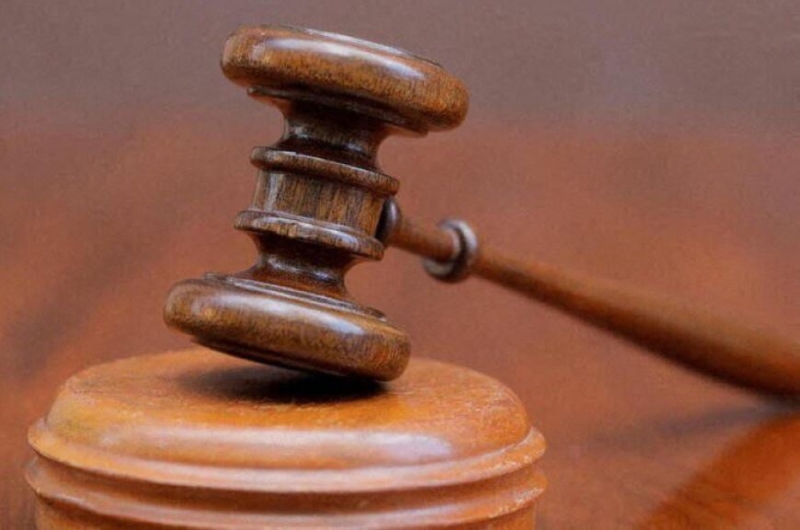
PUTRAJAYA, Jan 4 — The Federal Court here today upheld the death sentence imposed on a former security guard for the murder of his two co-workers whom he slashed with a parang when they were asleep seven years ago.
A three-member bench comprising Court of Appeal president Tan Sri Abang Iskandar Abang Hashim and Federal Court judges Datuk Mary Lim Thiam Suan and Datuk Abu Bakar Jais dismissed Mohd Ferdaus Suwardi’s appeal against his conviction and death sentence.
In delivering the court’s decision, Justice Abang Iskandar said the court maintained the death penalty imposed on Mohd Ferdaus by the lower courts in light of the gruesome manner the crime was committed, which was without any mercy.
He said the court declined to invoke its discretion to substitute the death sentence on Mohd Ferdaus for a custodial sentence.
Earlier, in dismissing Mohd Ferdaus’s appeal against his conviction, Justice Abang Iskandar said the lower courts were correct to find him (Mohd Ferdaus) guilty of killing the victims and that he (Mohd Ferdaus) failed to prove the balance of probability that he was legally insane when he committed the crime.
Mohd Ferdaus, 37, was sentenced to death by the High Court on November 12, 2019, after he was found guilty of killing Syed Mohd Fazrul Syed Mohd Ridhuan, 23, and Wan Amir Hamzah Abu Hassan, 48, at a chicken processing factory in Jalan Bukit Kuda, Klang, Selangor between 6.30am and 9am on July 31, 2017.
He lost his appeal at the Court of Appeal on May 26, 2022.
According to the facts of the case, Mohd Ferdaus returned to his village after killing the two men and admitted to his mother what he had done.
In his testimony, Mohd Ferdaus admitted to killing the two men, but on the defence of insanity under Section 84 of the Penal Code.
However, the High Court judge, in considering the expert evidence of three psychiatrists found that Mohd Ferdaus failed to prove the defence of insanity.
In mitigation before the Federal Court today, lawyer Mohd Fadhly Yaacob asked the court to substitute the death sentence on his client to between 30 years and 33 years in jail, but deputy public prosecutor Ng Siew Wee urged the court to maintain the death penalty.
She said Mohd Ferdaus had attacked the deceased when they were asleep and the attack was exceptionally cruel, adding that Syed Mohd Fazrul suffered 45 injuries while Wan Amir Hamzah had 23 injuries on his body.
“He
did not stop the attack when the deceased begged for mercy,” she said,
adding that Mohd Ferdaus acted out of spite with vindictiveness which
warranted the most severe condemnation. — Bernama, Malay Mail, 4/1/2024
54/… Question of the death penalty (A/HRC/54/L.34)
The Human Rights Council,
Guided by the purposes and principles of the Charter of the United Nations,
Recalling the Universal Declaration of Human Rights, the International Covenant on Civil and Political Rights, the Convention on the Rights of the Child, the Convention against Torture and Other Cruel, Inhuman or Degrading Treatment or Punishment and all other relevant international and regional human rights instruments, and reaffirming that all States must implement their obligations under international human rights law,
Recalling also the Second Optional Protocol to the International Covenant on Civil and Political Rights, aiming at the abolition of the death penalty,
Recalling
further General Assembly resolutions 62/149 of 18 December 2007, 63/168
of 18 December 2008, 65/206 of 21 December 2010, 67/176 of 20 December
2012, 69/186 of 18 December 2014, 71/187 of 19 December 2016, 73/175 of
17 December 2018, 75/183 of 16 December 2020 and 77/222 of 15 December
2022 on the question of a moratorium on the use of the death penalty,
Reaffirming the safeguards guaranteeing the protection of persons facing the death penalty set out in the annex to Economic and Social Council resolution 1984/50 of 25 May 1984 and the provisions regarding the implementation of the guidelines contained in Council resolutions 1989/64 of 24 May 1989 and 1996/15 of 23 July 1996,
Recalling all resolutions of the Commission on Human Rights on the question of the death penalty, the last of which was resolution 2005/59 of 20 April 2005,
Recalling
also Human Rights Council decision 18/117 of 28 September 2011 on
reporting by the Secretary-General on the question of the death penalty,
Council resolution 22/11 of 21 March 2013 on a panel on the human
rights of children of parents sentenced to the death penalty or
executed, Council decision 22/117 of 21 March 2013 on a high-level panel
discussion on the question of the death penalty, and Council
resolutions 26/2 of 26 June 2014, 30/5 of 1 October 2015, 36/17 of 29
September 2017, 42/24 of 27 September 2019 and 48/9 of 8 October 2021 on
the question of the death penalty,
Taking note
of the reports of the Secretary-General on the question of the death
penalty, in the latest of which the Secretary-General focused on the
relationship between articles 6 and 14 of the International Covenant on
Civil and Political Rights, focusing on the right to seek pardon or
commutation of sentences and the right to have one’s conviction and
sentence reviewed by a higher tribunal according to law, in accordance
with the safeguards guaranteeing protection of the rights of those
facing the death penalty set out in the annex to Economic and Social
Council resolution 1984/50, and in which he analysed the applicable
legal framework and shared available data and examples of national
practices,1
Acknowledging the report of the Office of the United Nations High Commissioner for Human Rights on the high-level panel discussion on the question of the death penalty, according to which the panel found that the death penalty continues to be provided and applied for crimes that do not meet the threshold of “the most serious crimes”, including drug-related offences,
Stressing that the term “the most serious crimes” has consistently been read restrictively and interpreted as pertaining only to crimes of extreme gravity involving intentional killing, and stressing also that under no circumstances can the death penalty ever be applied as a sanction against specific forms of conduct, such as apostasy, blasphemy, adultery, consensual same-sex conduct or relations, establishing political opposition groups or offending a head of State, and that States parties that retain the death penalty for such offences commit a violation of their international obligations,
Mindful of the work of the special procedure mandate holders who have addressed human rights issues relating to the death penalty, including the Special Rapporteur on torture and other cruel, inhuman or degrading treatment or punishment, the Special Rapporteur on extrajudicial, summary or arbitrary executions, the Special Rapporteur on the independence of judges and lawyers and the Special Rapporteur on the promotion and protection of human rights and fundamental freedoms while countering terrorism,
Mindful also of the work undertaken by the treaty bodies to address human rights issues relating to the death penalty,
Recognizing
the role of regional and subregional instruments and initiatives
towards the abolition of the death penalty, which in some cases have led
to the prohibition of the use
of the death penalty,
Welcoming the fact that the international trend towards the abolition of the death penalty is continuing, that many States are applying a moratorium on the use of the death penalty, and all measures taken by States towards limiting the application of the death penalty,
Noting that States with different legal systems, traditions, cultures and religious backgrounds have abolished the death penalty or are applying a moratorium on its use,
Recalling article 6 (6) of the International Covenant on Civil and Political Rights, which states that nothing in that article shall be invoked to delay or to prevent the abolition of capital punishment by any State party to the Covenant, and bearing in mind that, according to the Human Rights Committee, States parties that are not yet totally abolitionist should be on an irrevocable path towards complete eradication of the death penalty, de facto and de jure, in the foreseeable future,
Noting that,
also according to the Human Rights Committee, States parties to the
International Covenant on Civil and Political Rights that have abolished
the death penalty are barred from reintroducing it, and noting also
that the reinstatement of the death penalty by a State party to the
Second Optional Protocol to the International Covenant on Civil and
Political Rights is a violation of international law,
Recalling that derogation from the right to life is never permitted, even during a state of emergency,
Acknowledging the interest in studying the question of the death penalty, as well as in holding local, national, regional and international debates related thereto,
Emphasizing the importance for the effectiveness and transparency of debates on the death penalty of ensuring that the public has access to balanced information, including accurate information and statistics on criminality and the various effective ways to combat it without resorting to capital punishment,
Strongly deploring the fact that the use of the death penalty leads to violations of the human rights of the persons facing the death penalty and of other affected persons,
Recalling
that, particularly in capital punishment cases, States are required to
ensure that all persons benefit from a fair trial and a guarantee of due
process, by providing adequate assistance of legal counsel from the
earliest stages of their detention and at every stage of the
proceedings, without discrimination of any kind, and effective access to documents and other
evidence that are essential for their defence, and that failure to respect fair trial guarantees in
proceedings resulting in the imposition of the death penalty could constitute a violation of the right to life,
Emphasizing that it is important that States ensure that due process and fair trial guarantees and safeguards, including the right to have one’s conviction and sentence reviewed by a higher tribunal according to law and the right to seek pardon and commutation, are effectively in place and implemented,
Recalling that the right of everyone convicted of a crime to have their conviction and sentence reviewed by a higher tribunal according to the law includes a duty on States to review the conviction and sentence on the merits, and stressing that a violation of this right in proceedings resulting in the imposition of the death penalty renders the death sentence arbitrary in nature and in violation of the right to life,
Underscoring that the denial of legal assistance by the tribunal reviewing the death sentence of an indigent convicted person precludes an effective review of the conviction and sentence by the higher tribunal, and that such denial of legal assistance constitutes a violation of article 14 (3) (d) and (5) of the International Covenant on Civil and Political Rights,
Reaffirming that States are required to allow individuals sentenced to death to seek pardon or commutation, that amnesties, pardons and commutations can be granted to them in appropriate circumstances, that such requests for pardon or commutation are thoroughly examined and that death sentences are not carried out in the event any appeal or other recourse procedure or other proceeding relating to pardon or commutation of the sentence remain pending or unresolved,
Reaffirming
also that, under international human rights law, no category of
sentenced persons may be excluded in law or in practice from pardons or
commutations of a death sentence, and that the conditions for attainment
of relief must not be unnecessarily burdensome, discriminatory in
nature or applied in an arbitrary and non-transparent manner, and
expressing concern that, while many countries provide for the right to
seek pardon or commutation of a death sentence in their national
legislation, certain crimes are often excluded from it, or the number of
pardons or commutations may be capped,
Underlining that in all cases where the death penalty may be imposed, the personal circumstances of the offender and the particular circumstances of the offence, including its specific attenuating elements, must be considered by the sentencing court, and expressing concern, in this regard, that the use of mandatory death sentences is arbitrary in nature and irreconcilable with the right to life and the right to a fair trial,
Stressing
that those convictions resulting in the death penalty based on
information obtained through torture or cruel, inhuman or degrading
treatment of interrogated persons violate article 15 of the Convention
against Torture and articles 7, 14 (3) (g) and 6 of the International
Covenant on Civil and Political Rights,
Considering that, in order to avoid wrongful convictions in death penalty cases, States should take all feasible measures to review procedural barriers to reconsideration of convictions and to re-examine past convictions based on new evidence, including new DNA evidence,
Recalling that persons sentenced to death, their families and their lawyers should be provided with timely and reliable information on the procedures and timing of appeals, clemency petitions and executions,
Stressing
the need to examine further in which circumstances the imposition or
application of the death penalty violates the prohibition of torture and
other cruel, inhuman or degrading treatment or punishment, including
because of the death row phenomenon, the methods of execution or the
lack of transparency around executions,
Emphasizing that access to consular assistance for foreign nationals, provided for in the Vienna Convention on Consular Relations, is an important aspect of the protection of those facing the death penalty abroad,
1. Urges all States to protect the rights of persons facing the death penalty and other affected persons by complying with their international obligations;
2. Calls upon States that have not yet acceded to or ratified the Second Optional Protocol to the International Covenant on Civil and Political Rights, aiming at the abolition of the death penalty, to consider doing so;
3.
Calls upon States that have not yet abolished the death penalty to take
active steps to reduce the number of offences for which the death
penalty may be imposed and to limit them strictly to “the most serious
crimes”;
4. Calls upon States that provide for or apply the mandatory death penalty to end this practice;
5. Urges all States to respect international standards that provide safeguards guaranteeing protection of the human rights of those facing the death penalty, in particular the minimum standards, as set out in the annex to Economic and Social Council resolution 1984/50 of 25 May 1984;
6. Also urges all States to ensure that all legal proceedings, including those before special tribunals or jurisdictions, and particularly those relating to capital offences, uphold the rights and are consistent with the minimum procedural guarantees contained in article 14 of the International Covenant on Civil and Political Rights, including:
(a)
That those facing the death penalty can exercise their right to apply
for pardon or commutation of their death sentence, notably by ensuring
necessary procedural guarantees,
such as that conditions for
attaining pardons or commutations are not unnecessarily burdensome,
discriminatory in nature or applied in an arbitrary and non-transparent
manner,
that clemency applications are heard within a reasonable period of time, and that certainty is
provided regarding the pardon and commutation procedures;
(b) That everyone sentenced to death has the right to have his or her conviction and sentence reviewed by a higher tribunal according to the law, and that the conviction and sentence are reviewed on the merits, on the basis of the sufficiency of the evidence and the law, while taking particular care to consider and investigate fully allegations that a death sentence is based on evidence elicited through torture or ill-treatment, noting that the Manual on the Effective Investigation and Documentation of Torture and Other Cruel, Inhuman or Degrading Treatment or Punishment (Istanbul Protocol) can provide useful guidance regarding investigations into such allegations, and that civilian courts have the right to review any death sentences issued against civilians by military tribunals;
7. Calls upon States to ensure that all accused persons, in particular poor and economically vulnerable persons and persons with disabilities, can exercise their rights relating to equal access to justice, to ensure adequate, qualified and effective legal representation at every stage of civil and criminal proceedings in cases of capital punishment through effective legal assistance, and to ensure that those facing the death penalty can exercise their right to seek pardon or commutation of their death sentence;
8. Also calls upon States to comply with their obligations under article 36 of the Vienna Convention on Consular Relations, and to inform without delay foreign nationals who have been arrested or detained of their right to contact the relevant consular post and to communicate with their consular representatives, bearing in mind that failure to promptly inform detained foreign nationals of their right to consular notification pursuant to the Vienna Convention on Consular Relations, resulting in the imposition of the death penalty, would likely violate the right to life;
9. Calls upon States that have not yet abolished the death penalty to make available systematically and publicly full, accurate and relevant information, disaggregated by gender, age, nationality, race, disability and other applicable criteria, with regard to their use of the death penalty, inter alia, the charges, number of persons sentenced to death, the number of persons on death row and the location of their detention, the number of executions carried out and the number of death sentences reversed, commuted on appeal or in which amnesty or pardon has been granted, as well as information on any scheduled execution, which can contribute to possible informed and transparent national and international debates, bearing in mind that access to reliable information on the imposition and application of the death penalty enables national and international stakeholders to understand and assess the scope of these practices, including about compliance with the obligations of States with regard to the use of the death penalty;
10. Requests the Secretary-General to dedicate the 2025 supplement to his quinquennial report on capital punishment to the consequences arising at various stages of the imposition and application of the death penalty on the enjoyment of the human rights of persons facing the death penalty and other affected persons, paying specific attention to equality of arms, the need to prevent miscarriage or failure of justice, and the irreversibility of the death penalty, and to present it to the Human Rights Council for consideration at its sixtieth session and to make it available in all languages before the session;
11. Decides that the upcoming biennial high-level panel discussion to be held during the fifty-eighth session of the Human Rights Council will address the contribution of the judiciary to the advancement of human rights and the question of the death penalty;
12. Requests the Office of the United Nations High Commissioner for Human Rights to organize the high-level panel discussion and to liaise with States, relevant United Nations bodies, agencies, treaty bodies, special procedures and regional human rights mechanisms, as well as with parliamentarians, civil society, including non-governmental organizations, and national human rights institutions with a view to ensuring their participation in the panel discussion, and to make the biennial panel discussion fully accessible;
13. Also requests the Office of the High Commissioner to prepare a summary report on the panel discussion, also in an accessible format, and to submit it to the Human Rights Council at its sixtieth session;
14. Decides to continue its consideration of this issue in accordance with its programme of work.
Note:
The results of the vote on L.34 are as follows:
In favour (28): Argentina, Belgium, Benin, Bolivia, Chile, Costa Rica, Cote d’Ivoire, Czechia, Finland, France, Gabon, Georgia, Germany, Honduras, Kazakhstan, Kyrgyzstan, Lithuania, Luxembourg, Malaysia, Mexico, Montenegro, Nepal, Paraguay, Romania, South Africa, Ukraine, United Kingdom and Uzbekistan.
Against(11): Bangladesh, Cameroon, China, India, Maldives, Pakistan, Qatar, Somalia, Sudan, United Arab Emirates and United States.
Abstentions (7): Algeria, Eritrea, Gambia, Malawi, Morocco, Senegal and Viet Nam.
SOURCE: UN Website







